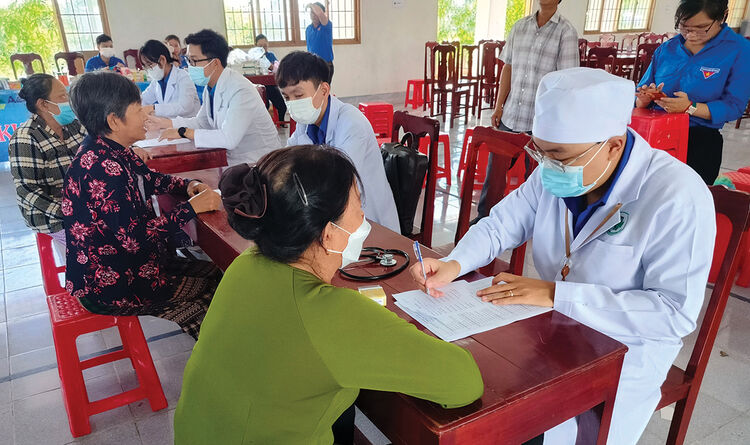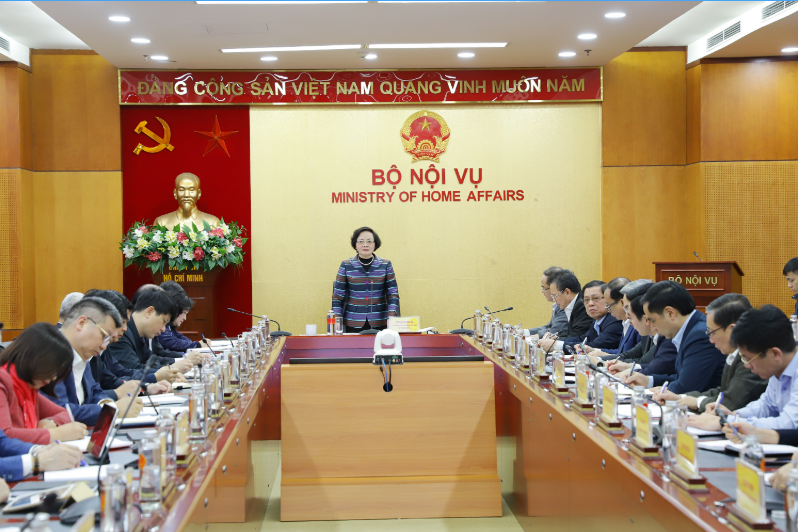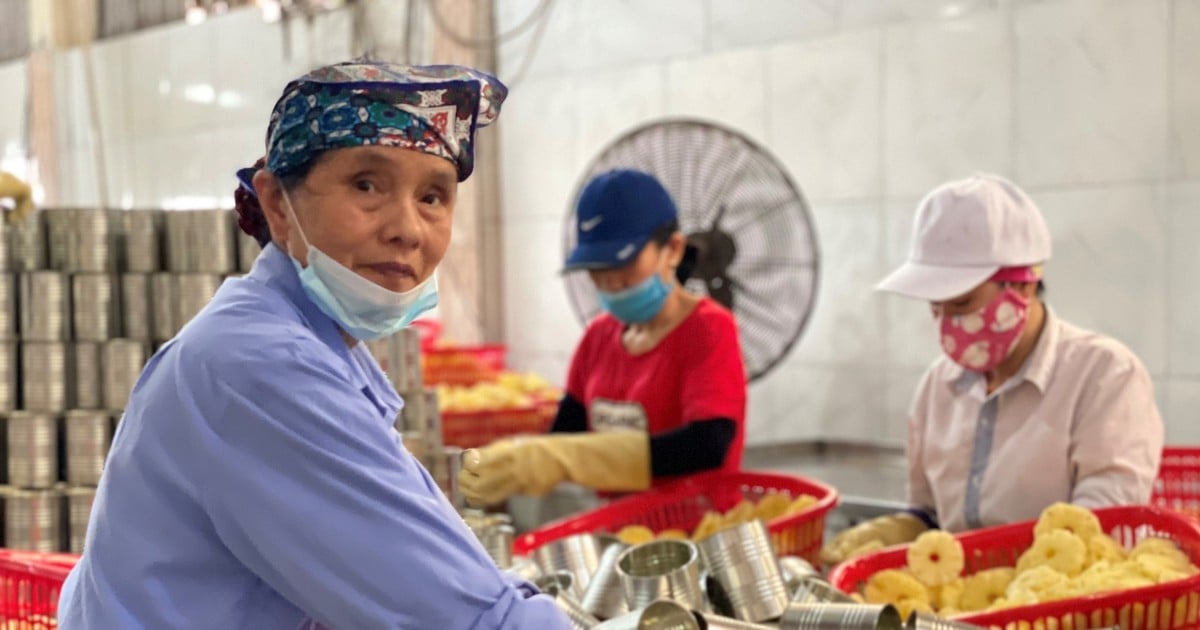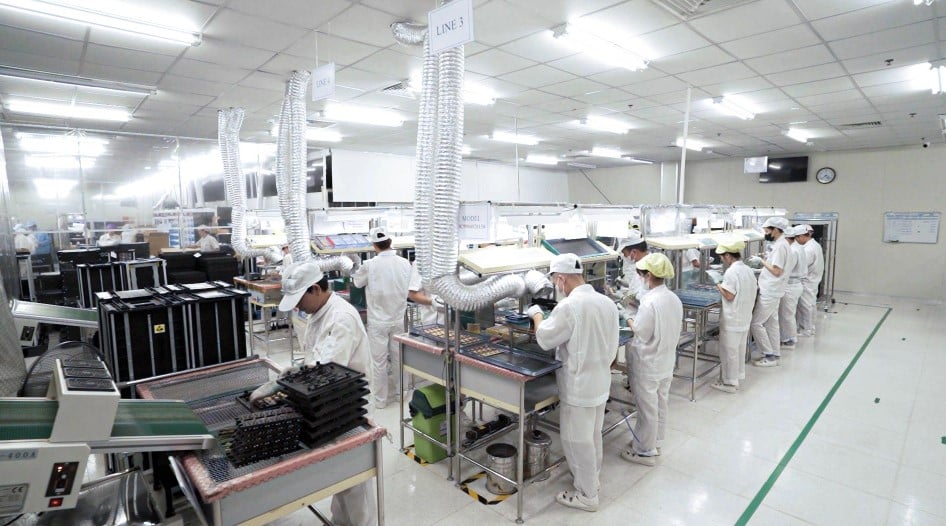Producing wooden furniture for export to the EU market at WOODSLAND Tuyen Quang Joint Stock Company. Photo: VNA.
The above assessment was made in the report "Assessing the effectiveness of support policies for businesses affected by the COVID-19 pandemic", through analysis of survey data for 355 businesses in 46 provinces/cities and group discussions with 9 business associations in Hanoi, Ho Chi Minh City (from August 18 to September 13, 2022) and 11 policy implementation agencies.
The survey shows signs of business recovery in 2022, such as good revenue growth (10.4%). However, a deeper analysis of the data shows that this growth is due to the low starting point effect due to the sharp decline during the COVID-19 pandemic. According to calculations from the data of the surveyed businesses, the actual growth rate in 2022 is 0.8% compared to 2019, which means it has only just returned to the level before the pandemic. This raises the issue of the need for measures from the State to support and promote further growth in the following years.
Nine groups of challenges listed by businesses include: High inflation/prices of goods/raw materials; risks of crisis and increased direct costs from suppliers; unsatisfactory quality of human resources due to low skills/lack of skills; difficult and/or unsafe logistics activities; labor shortage; changes and lack of transparency in regulations related to governance/environment/society; risks related to technology/digital and cybersecurity; ethical/legal/reputation risks of distributors/intermediaries and agents; difficulty in accessing bank capital.
Of which, the 3 biggest challenges in 2022 - 2023 are high inflation/prices of goods/raw materials, affecting 70.1% of the total number of surveyed enterprises; crisis risks and increased direct costs from suppliers, affecting 62.3% of the total number of surveyed enterprises and unsatisfactory quality of human resources due to low skills/lack of skills, affecting 33.2% of the total number of surveyed enterprises.
Comparing this result with other studies shows similar results, such as the survey by the Ministry of Planning and Investment in the second quarter of 2022, which stated that logistics costs, input material costs and capital costs are burdens that erode business profits; or the Business Environment Index report published by the European Chamber of Commerce in Vietnam (EuroCham) in September 2022, up to 1/3 of the Association's member businesses face major obstacles in issues related to labor supply.
Financial difficulties continue to be a major challenge for businesses after the lockdown is lifted, with more than half (52.3%) of surveyed businesses reporting financial difficulties in 2022. The proportion of businesses facing financial difficulties remains high compared to 2019, the time before the outbreak.
The causes of financial difficulties for businesses are still the traditional causes that existed both before and during the COVID-19 pandemic, including: outstanding receivables, high production and business costs, high interest rates and reduced ability to pay loans/debts due. In the context of major political fluctuations due to the Russia-Ukraine conflict and the post-pandemic world economy or China's COVID prevention and control policies, the surveyed business associations all agreed that these difficulties are getting worse and there are new difficulties (such as shipping costs, changes in shopping needs, etc.), greatly affecting businesses in the second half of 2022 and early 2023.
According to a report by the Handicraft and Wood Processing Association of Ho Chi Minh City (HAWA), sea freight rates have increased five times higher than before, causing many foreign customers of the business to continuously postpone shipment dates and delay receiving goods, affecting the cash flow of the business.
The report “Assessing the effectiveness of support policies for businesses affected by the COVID-19 pandemic” was conducted by the Prime Minister's Advisory Council for Administrative Procedure Reform through the USAID LinkSME Technical Assistance Project. LinkSME supports research to assess the effectiveness of these policies to seek lessons learned in the design and implementation of government support programs and policies. The study is expected to make recommendations to the Prime Minister and the Government on amendments or improvements to the implementation of current business support programs and policies related to post-COVID-19 production recovery, improving access to support packages for small and medium enterprises.
Recently, Minister, Head of the Government Office Tran Van Son, Chairman of the Prime Minister's Advisory Council for Administrative Procedure Reform, sent a document to Ministers, heads of ministerial-level agencies, agencies under the Government; Chairmen of People's Committees of provinces and centrally-run cities to study and refer to this report to improve the investment and business environment.
Source link






















































































Comment (0)